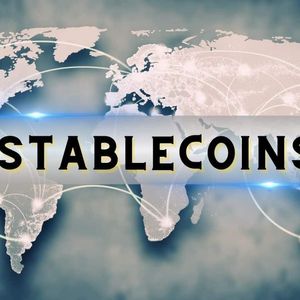Visa took a huge leap into cross-border payments of the future, with a spectacular roll-out of USDC (USD Coin) stablecoin settlement across more than 20 new African and broader EMEA territories. In a strategic alliance with Yellow Card, Africa's biggest licensed stablecoin payment partner, Visa is now on-chain settling transactions, competing head-on with SWIFT and traditional bank rails in cross-border commerce. A Remittance Game-Changer Traditionally, Africa's cross-border payments have been smothered by high fees (typically 6–10%), protracted settlement cycles, and dollar scarcity. Visa's new USDC rails, facilitated by Yellow Card technology, will lower costs by up to 80% and realize near-instant, 24/7 settlement—on weekends and holidays too. Instead of waiting days for banks to initiate dollar transfers, consumers and merchants can now send and receive money in seconds, with on-chain visibility and better liquidity management. Chris Maurice, CEO of Yellow Card, summed up the ambition: “Together with Visa, we’re building a bridge between traditional finance and the future of money movement.” The partnership gives Visa immediate access to Yellow Card’s mature crypto corridors, which have already processed over $6 billion in transactions since 2019, primarily through USDT and USDC. How It Works: Visa Direct Meets Stablecoins Visa's rollout is based on its Visa Direct network—one of the world's largest digital payments networks, spanning over 190 countries. Now, some selected issuers and acquirers in Central and Eastern Europe, the Middle East, and Africa can directly settle USD cross-border transactions on the blockchain using USDC. This means individuals and corporates can send and receive money with fewer intermediaries at lower costs and settle in real-time. Regulatory Frictions and Local Integration The African and EMEA regulatory landscape is diverse and rapidly shifting. Nigeria and South Africa are moving towards open crypto policies, while others currently have gray or restrictive strategies. Visa and Yellow Card are closely working with regulators, putting compliance checks over their blockchain rails so they can avoid the errors that have hindered previous crypto launches. Central to this relationship is modularity: mass market financial technology giants M-Pesa and Chipper Cash can utilize Visa's USDC rails inside their respective businesses. M-Pesa has already got crypto purchases working with peer-to-peer platforms, with over 60 million customers; Chipper Cash is testing stablecoin-to-cash on-ramps with MoneyGram and Stellar. If these players tap into Visa's rails, the impact on remittance fees and financial inclusion will be revolutionary. Scaling, Competition, and the Road Ahead Visa's move is part of its broader push to position itself as the backbone for the next wave of payments. Visa has already settled over $225 million in stablecoin volume since 2023 and is now rolling out pilots with banks and fintechs in the Middle East and Europe. The next stage will see more local banks, mobile money operators, and fintechs linking to Visa's on-chain rails, with further market launches planned for 2026. Regulatory clarity is still an issue, but as Visa's SVP for CEMEA Godfrey Sullivan put it: ”In 2025, we believe that every institution that moves money will need a stablecoin strategy.” Meanwhile, the race is on to see whose fintechs and markets will be the first to capture the new rails—and whose legacy players will innovate or get left behind. Bottom Line Visa's partnership with Yellow Card and launch of USDC payments across Africa and EMEA is a turning point for cross-border remittances and digital currency. With instant, low-cost stablecoin settlements, the money movement of tomorrow is being built today—and the world waits to find out who will get plugged in next.
















